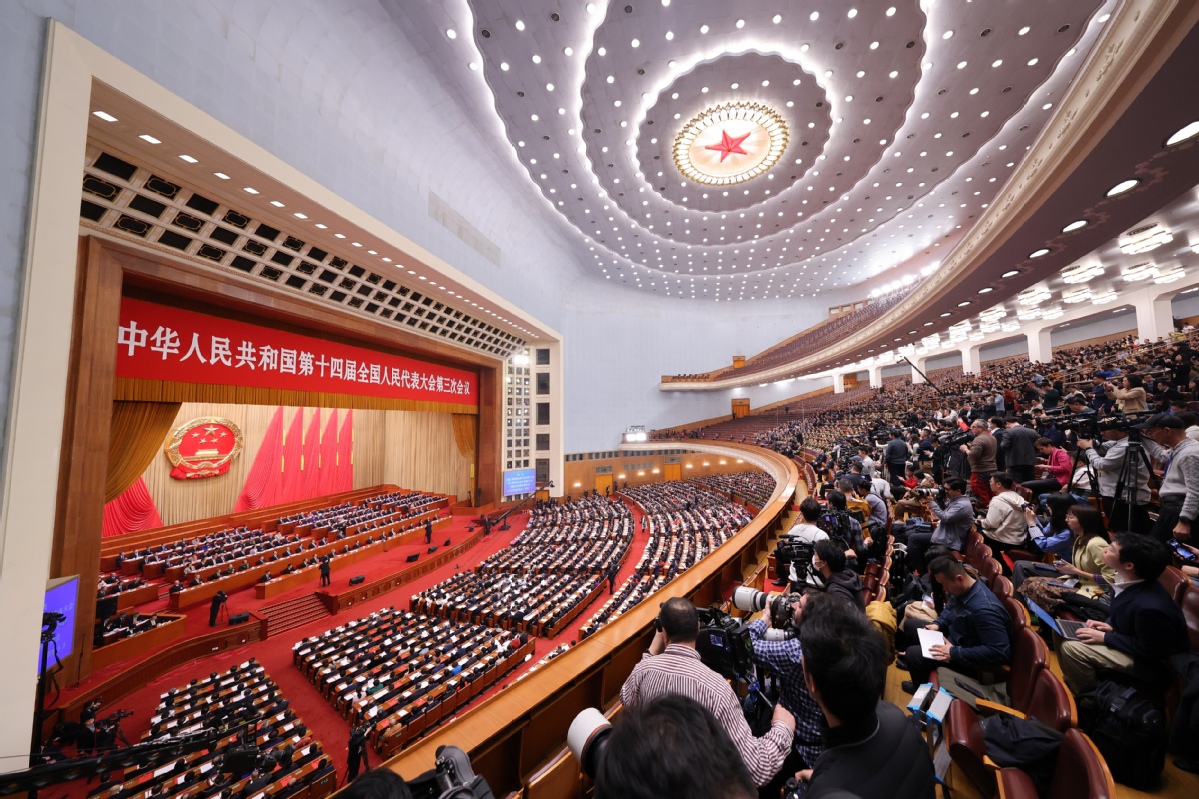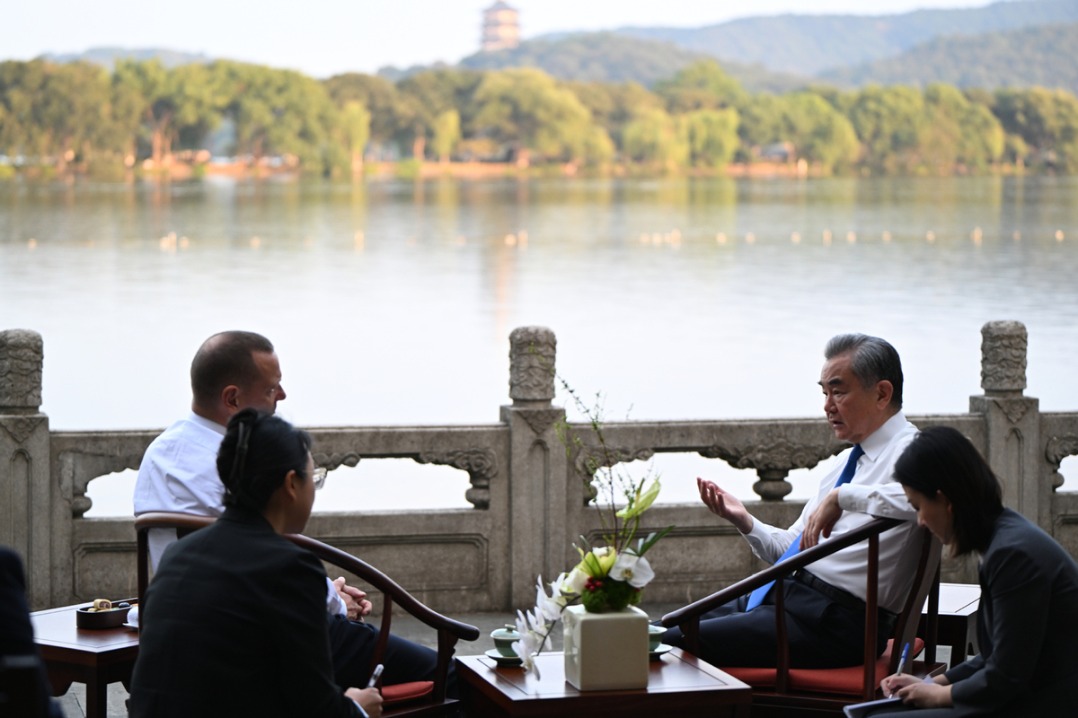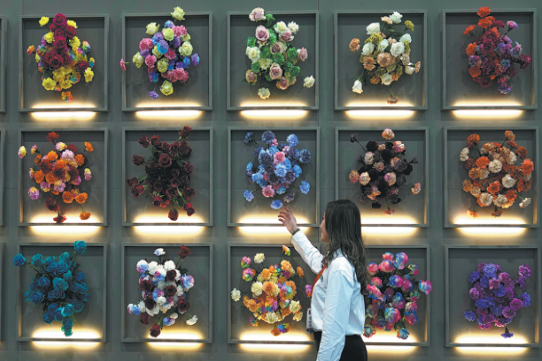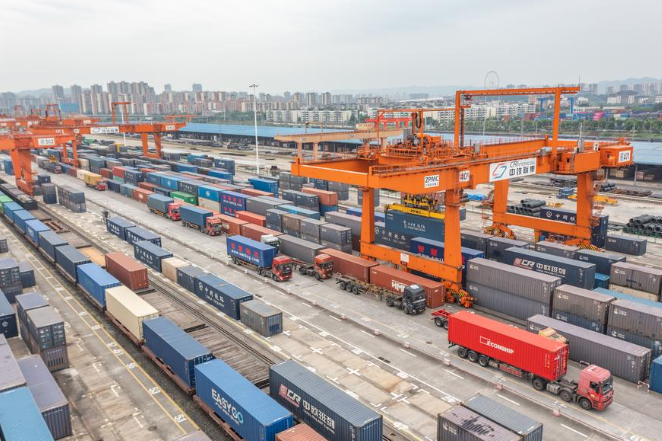Meetings put people's well-being in spotlight


China's policy agenda is anchored to the two sessions. The conclusion of the third session of the 14th National People's Congress, the country's top legislature, and the 14th National Committee of the Chinese People's Political Consultative Conference, the nation's top political advisory body, not only set national priorities for social and economic development, but also showcased China's governance that centers on people's well-being. The sessions are vibrant platforms for extensive policy deliberation and scientific decision-making, strengthening the whole-process people's democracy that is the hallmark of Chinese governance.
The just-concluded two sessions had China's whole-process people's democracy on full display. Among the defining characteristics was the emphasis on public participation. Instead of just discussing theoretical concepts, NPC deputies and CPPCC members offered recommendations based on the realities of Chinese society. The conversations, ranging from social policies and economic development to legislative changes, represented the opinions of people from various walks of life. In 2024 alone, more than 2,000 policies and initiatives addressing important reforms, development and livelihood issues were the result of more than 5,000 motions and suggestions made by NPC deputies and CPPCC members.
China's whole-process people's democracy ensures that citizens enjoy a wide range of rights prior to, during and after decision-making.
These rights include the liberty to participate, voice their opinions, be informed, and supervise government actions.
In contrast to conventional democratic models that mostly depend on elections, this approach guarantees that democratic values are deeply embedded in all phases of administration, from the creation of policies to their execution and assessment.
Such a mode of democratic decision-making goes from the grassroots to the policy circles.
The grassroots legislative contact stations, which act as direct avenues for public input, are a prime example of the responsiveness of this democratic system.
This bottom-up approach is further reflected in the diverse composition of NPC deputies. The election of migrant workers as deputies in 2018, for example, highlighted how all strata of society are represented, ensuring a broad spectrum of perspectives in national decision-making. Additionally, the CPPCC National Committee organizes fact-finding missions where members of the advisory body visit local enterprises and projects, gathering firsthand insights into how policies are being implemented and what improvements are needed.
China's economic resilience is a testament to the effectiveness of this inclusive governance model. China is to sustain its robust growth of GDP at around 5 percent this year after achieving the expected rate last year, despite international uncertainties and a sluggish global economy. This achievement is mostly ascribed to China's ability to adjust policy in response to shifting economic situations.
Moreover, the centralized and unified leadership of the Communist Party of China ensures that decisions are made efficiently, without unnecessary delays due to lack of consensus. This mechanism makes it possible to make timely policy changes in accordance with shifting social conditions and public needs, for example lowering the cost of basic medications, enhancing social security, and implementing focused initiatives to stimulate the economy.
The two sessions put public accountability to work. They demonstrate how China's whole-process people's democracy successfully integrates governance with public needs. This system not only ensures stability but also fosters continuous development. The feedback cycle of "reflecting-listening-consulting-implementing" creates a governance structure that is both adaptive and accountable.
The sessions primarily focus on livelihood issues. The expansion of high-quality medical resources in central and western China, urban renewal, employment and elder care were among the topics of debate this year. A joint press conference was held by key ministries to address these issues, and announcements such as the expansion of elder care services, the "Skills Illuminate the Future" training initiative, and the nationwide renewal plan for residential communities built before 2000 demonstrate the country's focus of agenda on people's well-being.
In effect, both the NPC and CPPCC play crucial roles in shaping China's long-term strategy and driving forward sustainable development. Their motions and suggestions provide the country with essential references for decision-making, ensuring effective governance and forward-looking decisions. Through their oversight mechanisms, these bodies push forward and refine economic policies, keeping them targeted and impactful.
In a world grappling with uncertainty, China's model of participatory, responsive and inclusive governance offers a compelling alternative. The two sessions reaffirm that people-centered development is not just a political philosophy, but the driving force behind the country's sustained progress and modernization. The annual gatherings serve as a reminder that democracy, when designed to continuously meet people's needs and deeply integrated into governance, can be both effective and transformative.
The author is founder and CEO of The Daily CPEC, a media platform in Islamabad, Pakistan.

































